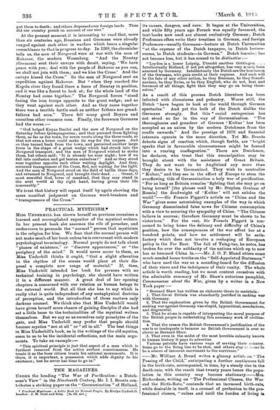PRACTICAL MYSTICISM.*
Miss Utingiusitr.. has shown herself on previous occasions a learned and accomplished expositor of the mystical writers. In her present book she assumes the ride of preacher, and endeavours to persuade the " normal " person that mysticism is the religion for him. We fear that the normal person will not make much of her book unless be is conversant with modern psychological terminology. Normal people do not talk about planes of existence," or "discrete appearances," or "the periphery of the mind." It would never occur to them, as Miss Underhill thinks it ought, "that a slight alteration in the rhythm of the senses would place at their dis- posal a complete new range of material." If, then, Miss Underhill intended her book for persons with no technical training in psychology, she should have written it in a different manner. A great deal of her opening chapters is concerned with our relation as human beings to the external world. But all that she has to say which is really vital is quite independent of any metaphysical doctrine of perception, and the introduction of these matters only darkens counsel. We think also that Miss Underhill would have given herself more chance of gaining disciples if she bad sat a little loose to the technicalities of the mystical writers themselves. But we say so as ourselves only proselytes of the gate, and Miss Underhill may prefer that people should become mystics "not at all" or "all in all." The best things in Miss Underhill's book, as in the writings of the old mystics, seem to on to be the incidental reflections, not the main argu- ments. To take an example:— " This spiritual principle is just that aspect of a man which is furthest removed from the active surface consciousness. He treats it as the busy citizen treats his national monuments. It is there, it is important, a possession which adds dignity to his existence ; but he never has time to go in."










































 Previous page
Previous page